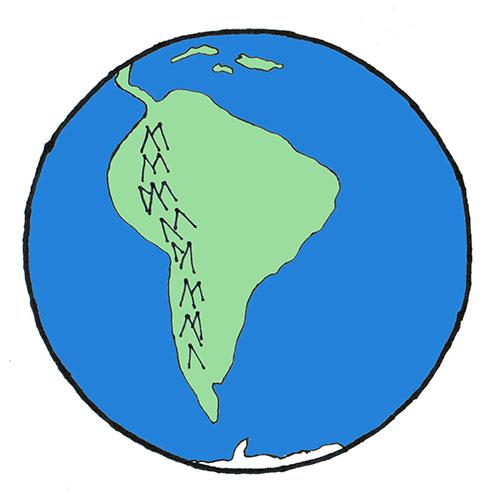
Over the past few days I’ve been wondering whether it’s possible for the earth to develop an unbalanced load on spin cycle.
Let me explain.
When a top-opening washing machine is in the post-rinse spin stage, ridding the load of water, it can become unbalanced. This unbalance is caused by too much laundry sitting in one spot, rather than being spaced evenly around the basin. I find that washing blankets, big beach towels and similarly large items run a greater risk of developing this problem. The problem typically reveals itself with a loud “thump, thump, thump” as the spinning wash basin revolves off-center, shaking the entire washing machine.
So, can the earth develop this same problem? For example, could the Andes Mountains in South American grow so tall, so wide, and so massive that they cause the earth to become unbalanced? I shudder to think what the practical results of such a phenomenon might be.





Short answer, no. Washers do that because they are mechanically restricted to a single rotation axis. When this is different from it’s center of mass, it begins to shake. The Earth has no mechanical restriction. It will always rotate around it’s center of mass whatever that is.
If that center of mass were to ever change excessively and rapidly enough that would be a bumpy ride, but I can think of know mechanism for that that wouldn’t itself be turbulent.
Interesting … thanks for sharing your reply.
Your answer makes me think that if the point of rotation where to change, then the path of Earth’s orbit around the sun would also likely change in time.
Earth’s orbit is always changing. Because of the gravitational influence of the other celestial bodies in the solar system, the Earth is never actually in the same place more than once (relative to the sun). To say we have an elliptical orbit is a simplification. It’s actually very complex, but orbital mechanics is very forgiving.
Adding mass to the Earth would not change its orbit at all as long as the velocity is unchanged. All bodies fall at the same rate regardless of their mass. Changing its center of mass would be equivalent to a shift in some direction. This could effect the orbit, but like I said it would be very unlikely. Earth is a free floating body, as long as its position and velocity do not change, it’s orbit will not change.
Ah, okay. Thanks for the detailed explanation. Most helpful.
Sorry, I find this physics stuff really interesting. I get a little didactic sometimes. I was also considering commenting: “Just don’t overload Earth, and we’ll all be fine.”